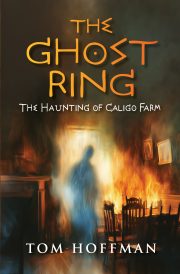Radical Fiction or “Are We There Yet?”
By L. D. Lewis
(This article originally appeared in The SFWA Bulletin #214.)
In much the way too many crows is a murder, I have what is effectively an embarrassment of a TBR pile. It sits in various stacks atop my dining room table and beside the box containing the tall bookcase I have yet to put together, brimming with the promise of new, interesting adventures from dozens of unique voices from every continent on the planet. So it’s odd in my everlasting search for more things to add to it—for new covers to stare at lustily before putting them aside in favor of yet another project— that I can find a dearth of anything to complain about.
And yet.
I am aware that the voices in my stacks are filtered through the English-speaking, pro-colonial lens of the global north. It means the stories responsible for forming the literary canon, and thus the concept of valuable or marketable literature, are reflective of the same lens responsible for a number of societal ills. It means that of the millions of books available to me in the traditionally published market, I will primarily find works that are mild in their radicality, beholden as they are to the ancient, archaic systems only recently put to the test by new and emerging talents, writers, readers, and critics.
The volume of works by and about people from an unprecedented spectrum of perspectives, of cultural backgrounds, and story-telling traditions is broader than it has ever been. We have new writers, more diverse stories, better in-text representation of marginalized groups than the industry has ever seen. But we have not radicalized our decolonization of our stories.
It is a failure of our industry that we have not been more keen to publish or amplify those works which turn the genre on its ear, instead choosing to lean on our tropes, acquiring mainly the stories which compare to other stories for the sake of their promised sales potential as set by a colonialist standard.
Traditionally published SF/F is still beholden to its archetypes, its oft-tread narratives treated as universal if only because they are familiar: a native population endures some oppressive or genocidal experience with a settler group only to have an “awakened” or progressive protagonist of the settler class emerge as the empathetic rebel, a hero for standing against the status quo. That hero knows through their organic goodness or learns through participation in or observation of the horrors suffered by the marginalized class that they are indeed fruit of the poisonous tree.
By and large, these stories still—to varying degrees—rely on the systems and prejudices inherent in the world we inhabit. But there is no reason secondary worlds—SF/F’s defining element, its raison d’etre in many ways—should adhere to them.
This isn’t to say the nature of our reality, the failures of our current human condition should not be interrogated in our fiction. Of course it should. But where is the radical imagining of where civilizations could be if they weren’t dependent on conquest? On perpetual growth inverse to that of our environment? What if our heroes could be heroes for something greater—or at the very least, different—than divesting from class structure? What is there to be explored about the nature of humanity without its need to hinge on cultural or economic supremacy? How many more fictitious civilizations can we invent, model their fates after real-world atrocities, and then sacrifice for a singular protagonist to develop an inclusive moral core? Can there exist treasure hunts not reliant on the invasion of sacred lands or the raiding of a lost civilization’s tombs? Speculative fiction writers are in a prime position to invent at least cursory economic alternatives to capitalism, but because it so entrenches our lives, even our fiction employs either it or an order of socialism.
These rote narratives have become difficult to read without seeing centuries of an entire civilization refusing to reconcile or reckon with its history. Instead, it is re-lived, the mistakes and missteps replicated over and over again in re-skinned versions with protagonists who are brown or ethnic or disabled or queer, but only along a single axis at once (we can’t be too different, you see, for the market’s sake), as if we haven’t all gotten the point. As if we don’t know that the idea is to be the compassionate protagonist.
Many haven’t. But we don’t speak to them.
I try to shy away from prescriptive statements where writing is concerned. They’re too easily taken as gospel or an excuse to badger marginalized people into becoming resources for the betterment of some misguided soul’s work. But for originality’s sake, I do encourage readers and writers alike to engage with the works of those like Indigenous writers and publishers, people who not only have extensive, conscious interaction with colonial systems, but who are steeped enough in their own histories and cultures to be able to differentiate one from the other. In order to depict radical change, we have to be able to envision it first. For too many who have grown up in settler nations, been taught a valorized settler history, and made their livelihoods recreating settler mentalities in fiction, stories that deconstruct and confront settler and colonial narratives are essential to inspiring the ability to think beyond it.
New writers and racially and ethnically diverse writers hailing from cultures with narrative styles previously dismissed as poor writing or simply not marketable to a Western audience are now winning awards, being listed as best-sellers. For as long as publishing has existed as an industry, they are now, twenty years into the twenty-first century, still the “firsts” to do it. And it isn’t that their works are only now of such a quality as to be worthy of publishing. It’s that now, we are paying attention. The delay in our recognition of the value of writers like N.K. Jemisin, Silvia Moreno-Garcia, Rebecca Roanhorse, P. Djèlí Clark—all of whom are doing this work—is colonialism’s fault. We should have more experience with Indigenous storywork, African oral literary structure, Japanese Kishōtenketsu and its decentering of conflict as a means to drive plot. Colonialism’s reliance on assimilation, its insistence that any natural group be marginalized and any other group acknowledged as the authority on what constitutes quality in a voice has deprived us of generations of creators and myriad, dynamic forms of storytelling. There is no reason apart from supremacist ideation why global cultures see themselves colonized between a century and half a millennium ago, and only now reflected in its settled state’s literary canon.
And perhaps one can look at this list of chronic presences in Western literature and ask, “What else is there?” What, beyond these tenets of Western history, the culture in which we’ve either been steeped or has been exported to us in some way or another, is the foundation of our work?
The very idea of speculative fiction should be the exploration of that question. It should be demanded of writers in the genre that we force the expansion of our imaginations in every world we create. And in so doing, we expand the imaginations of our readers.
There are still more things in heaven and our infinite Earths, dear writer, than have been dreamt of in our pages. But it’s a gap that could do with closing.
L. D. Lewis is a coffee enthusiast and writer of SF/F primarily centering Black women and femmes in extraordinary worlds and with extraordinary power. She also serves as Art Director for FIYAH Literary Magazine for Black Speculative Fiction. She was awarded the 2017 Working-Class Writers Grant by the Speculative Literature Foundation. She lives in Georgia, on deadline, and under the judgmental gaze of her cat, Gustavo. Tweet her @ellethevillain.


